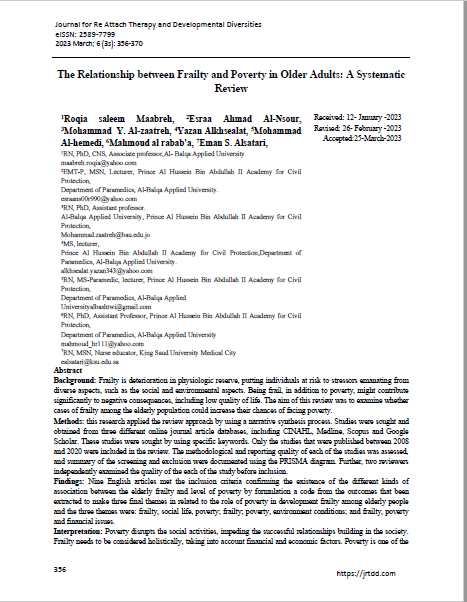The Relationship between Frailty and Poverty in Older Adults: A Systematic Review
Main Article Content
Abstract
Background: Frailty is deterioration in physiologic reserve, putting individuals at risk to stressors emanating from diverse aspects, such as the social and environmental aspects. Being frail, in addition to poverty, might contribute significantly to negative consequences, including low quality of life. The aim of this review was to examine whether cases of frailty among the elderly population could increase their chances of facing poverty.
Methods: this research applied the review approach by using a narrative synthesis process. Studies were sought and obtained from three different online journal article databases, including CINAHL, Medline, Scopus and Google Scholar. These studies were sought by using specific keywords. Only the studies that were published between 2008 and 2020 were included in the review. The methodological and reporting quality of each of the studies was assessed, and summary of the screening and exclusion were documented using the PRISMA diagram. Further, two reviewers independently examined the quality of the each of the study before inclusion.
Findings: Nine English articles met the inclusion criteria confirming the existence of the different kinds of association between the elderly frailty and level of poverty by formulation a code from the outcomes that been extracted to make three final themes in related to the role of poverty in development frailty among elderly people and the three themes were: frailty, social life, poverty; frailty; poverty, environment conditions; and frailty, poverty and financial issues.
Interpretation: Poverty disrupts the social activities, impeding the successful relationships building in the society. Frailty needs to be considered holistically, taking into account financial and economic factors. Poverty is one of the financial issues, demanding a prompt solution, which in turn, worsens the the quality of life an experienced by the elderly populations, notably adults.

